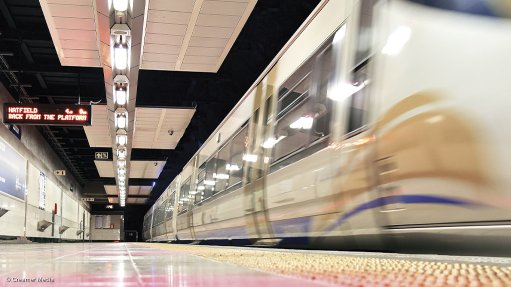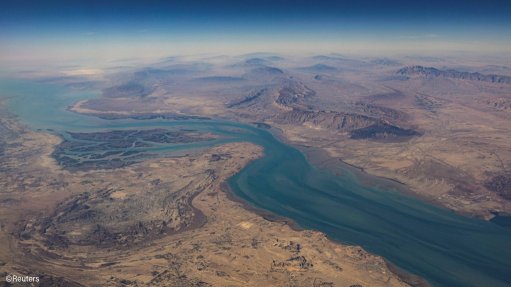Gridlock loading: Act now in South Africa’s renewable energy transition
The South African energy market is at a critical – but exciting – stage. Rising electricity costs, growing pressure to cut carbon emissions, and a national grid under strain have created the perfect push for businesses to switch to renewable energy or risk getting left behind in a low-carbon future.
For businesses still weighing up the move, one of the biggest hurdles they will encounter sooner rather than later is securing grid access. As more renewable energy projects come online and demand continues to climb, the ability to connect new projects to the grid is becoming increasingly limited, especially in regions with the best wind and solar resources. Wait too long, and your business could miss out entirely, or you could pay more in the future to connect.
Understanding Grid Constraints
According to the 2025 Generation Connection Capacity Assessment (GCCA) report by Eskom, the total remaining capacity for new projects nationwide is under 20 GW, and the regions best suited for wind and solar projects (Eastern Cape, Western Cape, Northern Cape and Hydra Central) are already maxed out. Other provinces still have some grid headroom, but only a few gigawatts, and that is disappearing fast.
What does this mean?
The risk is real for businesses that delay: you could miss the most favourable energy contracts and lose access to cost-effective locations. As early movers snap up prime grid connection points, latecomers may be forced to settle for less efficient, more expensive alternatives, or face long delays.
This is not just a technical limitation. Grid access is fast becoming a strategic business risk. Acting early is essential if your business is serious about energy resilience and long-term cost certainty.
Delay or Mayday?
For companies still weighing their options, the stakes of inaction are high. South Africa’s electricity prices have steadily risen for years, with Eskom tariffs consistently outpacing inflation. In 2003/04, the electricity cost per kilowatt-hour (kWh) was about R0.16/kWh. If prices had followed CPI since then, we would be paying around R0.50/kWh today. Instead, the average cost is R2.06/kWh – four times higher than inflation-linked pricing. This trend shows little signs of easing up.
Looming Carbon Taxes
It is not just electricity prices that are rising. The introduction of local and international carbon taxes adds further financial pressure. By 2031, as carbon taxes increase in South Africa and current tax allowances are gradually phased out, there is expected to be a pass-through price impact on electricity that does not come from renewable sources. Over time, carbon taxes could comfortably increase electricity generation costs by more than 20%.
And from early 2026, businesses exporting to Europe will also be required to pay the price differential between our lighter carbon tax regime and Europe’s under the Carbon Border Adjustment Mechanism (CBAM) – where the price of carbon is about six times higher.
Beyond the direct costs, reputational risk is growing. As sustainability becomes a key metric for investors and consumers alike, companies that delay the transition may see their environmental, social and governance ratings suffer. This can lead to decreased investor interest and damage to brand reputation. In contrast, those that move early on will be well-positioned to enhance their market position and win over eco-conscious consumers and investors.
More Than Just Plugging in to Renewables
Beyond grid capacity, transitioning to renewable energy comes with its own set of challenges. Projects take time, often 18 to 24 months to build, with total timelines stretching to four years if permissions, negotiations and construction hit delays.
Then there are the technical and regulatory complexities.
- Regulatory and financial complexity: Securing approvals, understanding emerging policies, and structuring energy deals is time intensive. Many businesses underestimate the expertise and capital planning required to get projects off the ground.
- Technical adjustments: Feeding renewables into the grid is not a simple plug-and-play. It demands detailed technical planning to ensure power quality and reliability, especially when upgrading existing grid infrastructure.
These are not reasons to wait — they are reasons to plan appropriately and partner wisely. Tackling these issues upfront is how businesses secure long-term energy savings and resilience.
Seizing the First-Mover Advantage
The benefits of moving quickly cannot be overstated. Companies that act now can lock in stable, favourable pricing and secure access to projects in strategic grid positions, putting themselves ahead of their competitors and mitigating future electricity price shocks.
Licensed electricity trader Discovery Green’s platform gives its clients this critical head start, helping businesses navigate the transition with a clear strategy: providing access to some of the largest wind and solar plants with secure grid capacity, locking in savings and price certainty through flexible agreements, and using its actuarial and data science skillset to ensure energy is only delivered when businesses need it. Its expertise in navigating regulatory, financial and technical landscapes ensures that its clients can confidently make decisions, knowing they are backed by industry-leading support and resources.
Act Now
With rising electricity prices, carbon taxes, and the market demanding sustainability, the case for renewables is stronger than ever. The window to secure prime grid access is narrowing, but it is still open for businesses to move. Do not wait until the grid is loaded with your competition – act now to ensure your business is not left behind in the race towards renewable energy.
Article Enquiry
Email Article
Save Article
Feedback
To advertise email advertising@creamermedia.co.za or click here
Press Office
Announcements
What's On
Subscribe to improve your user experience...
Option 1 (equivalent of R125 a month):
Receive a weekly copy of Creamer Media's Engineering News & Mining Weekly magazine
(print copy for those in South Africa and e-magazine for those outside of South Africa)
Receive daily email newsletters
Access to full search results
Access archive of magazine back copies
Access to Projects in Progress
Access to ONE Research Report of your choice in PDF format
Option 2 (equivalent of R375 a month):
All benefits from Option 1
PLUS
Access to Creamer Media's Research Channel Africa for ALL Research Reports, in PDF format, on various industrial and mining sectors
including Electricity; Water; Energy Transition; Hydrogen; Roads, Rail and Ports; Coal; Gold; Platinum; Battery Metals; etc.
Already a subscriber?
Forgotten your password?
Receive weekly copy of Creamer Media's Engineering News & Mining Weekly magazine (print copy for those in South Africa and e-magazine for those outside of South Africa)
➕
Recieve daily email newsletters
➕
Access to full search results
➕
Access archive of magazine back copies
➕
Access to Projects in Progress
➕
Access to ONE Research Report of your choice in PDF format
RESEARCH CHANNEL AFRICA
R4500 (equivalent of R375 a month)
SUBSCRIBEAll benefits from Option 1
➕
Access to Creamer Media's Research Channel Africa for ALL Research Reports on various industrial and mining sectors, in PDF format, including on:
Electricity
➕
Water
➕
Energy Transition
➕
Hydrogen
➕
Roads, Rail and Ports
➕
Coal
➕
Gold
➕
Platinum
➕
Battery Metals
➕
etc.
Receive all benefits from Option 1 or Option 2 delivered to numerous people at your company
➕
Multiple User names and Passwords for simultaneous log-ins
➕
Intranet integration access to all in your organisation




















